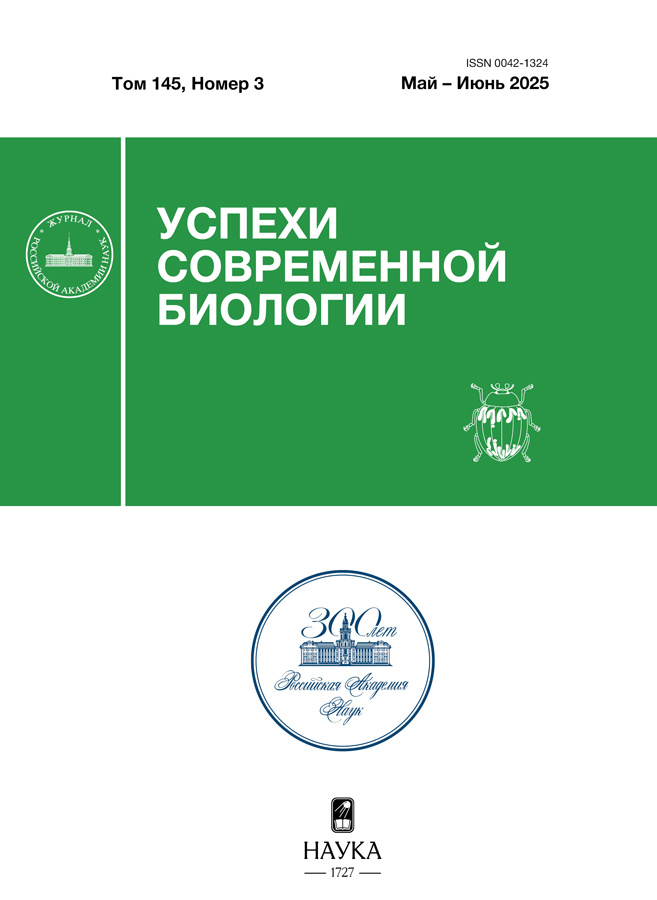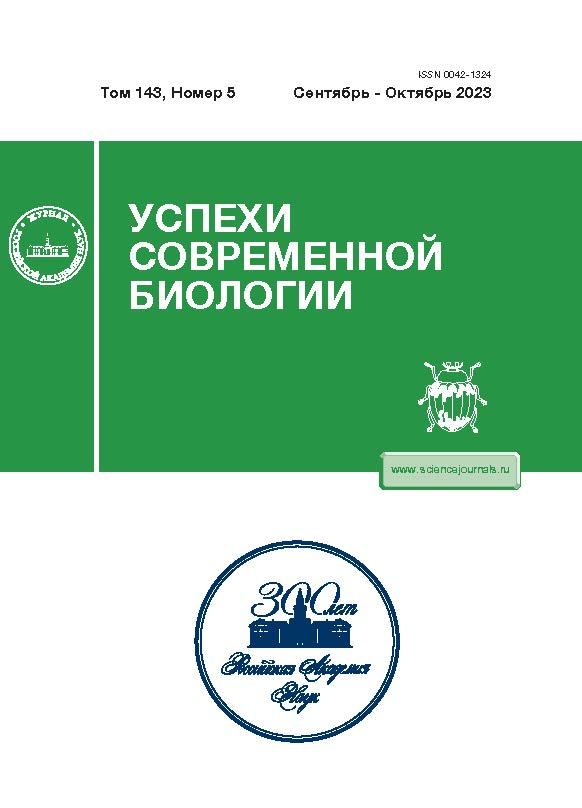Солнечный витамин D3 – многоликий, загадочный, необходимый
- Авторы: Гомазков О.А.1
-
Учреждения:
- Научно-исследовательский институт биомедицинской химии им. В.Н. Ореховича
- Выпуск: Том 143, № 5 (2023)
- Страницы: 419-429
- Раздел: Статьи
- Статья получена: 02.02.2025
- Статья опубликована: 01.09.2023
- URL: https://cardiosomatics.ru/0042-1324/article/view/653230
- DOI: https://doi.org/10.31857/S0042132423050046
- EDN: https://elibrary.ru/SKOQKG
- ID: 653230
Цитировать
Полный текст
Аннотация
Рассматривается значение витамина D3 для поддержания уровня здоровья в условиях острой респираторной и сосудистой патологии COVID-19. Физиологический дефицит витамина документируется как негативный прогноз подверженности влиянию вируса и тяжести заболевания. Многие клинические и экспериментальные исследования свидетельствуют, что витамин D3 выполняет функцию контроля гемоваскулярного гомеостаза – эндотелия сосудистой стенки, иммунологических реакций, свертывания и реологических свойств крови, системной гемодинамики и др. Многообразие эффектов определяется транскрипционной ролью рецептора витамина D3, экспрессирующего генные мишени синтеза функциональных белков. Рассматриваются возможности суплементации, поддержания уровня витамина D3 и его химических метаболитов, для профилактической и лечебной стратегии COVID-19.
Об авторах
О. А. Гомазков
Научно-исследовательский институт биомедицинской химии им. В.Н. Ореховича
Автор, ответственный за переписку.
Email: oleg-gomazkov@yandex.ru
Россия, Москва
Список литературы
- Геринг Х., Кожухова С. Витамин D – гормон солнца. А если солнца недостаточно? // Биохимия. 2015. Т. 80 (1). С. 14–28.
- Гомазков О.А. Эндотелий – мишень, которую выбирает коронавирус. М.: ИКАР, 2021. 62 с.
- Гомазков О.А. Постковидный синдром. Патофизиология системных дисрегуляций // Успехи соврем. биол. 2023. Т. 143 (3). С. 229–238.
- Ионова Ж.И., Сергеева Е.Г., Беркович О.А. Генетические и эпигенетические факторы, регулирующие экспрессию и функционирование рецептора витамина D у больных ишемической болезнью сердца // Рос. кардиол. журн. 2021. Т. 26 (1S). С. 425.
- Салухов В.В., Ковалевская Е.А. Витамин D – стратегический удар по коронавирусной инфекции // Мед. Совет. 2020. Т. 21. С. 218–228. https://doi.org/10.21518/2079-701X-2020-21-218-228
- Adams J.S., Ren S., Liu P.T. et al. Vitamin D-directed rheostatic regulation of monocyte antibacterial responses // J. Immunol. 2009. V. 182. P. 4289–4295. https://doi.org/10.4049/jimmunol.0803736
- Ashique S., Gupta K., Gupta G. et al. Vitamin D – a prominent immunomodulator to prevent COVID-19 infection // Int. J. Rheum. Dis. 2023. V. 26 (1). P. 13–30. https://doi.org/10.1111/1756-185X.14477
- Argano C., Bocchio R.V., Natoli G. et al. Protective effect of vitamin D supplementation on COVID-19-related intensive care hospitalization and mortality: definitive evidence from meta-analysis and trial sequential analysis // Pharmaceuticals (Basel). 2023. V. 16 (1). P. 130. https://doi.org/10.3390/ph16010130
- Baeke F., Korf H., Overbergh L. et al. Human T lymphocytes are direct targets of 1,25-dihydroxyvitamin D3 in the immune system // J. Steroid. Biochem. Mol. Biol. 2010. V. 121 (1–2). P. 221–227.
- Barlow P.G., Svoboda P., Mackellar A. et al. Antiviral activity and increased host defense against influenza infection elicited by the human cathelicidin LL-37 // PLoS One. 2011. V. 6. P. e25333. https://doi.org/10.1371/journal.pone.0025333
- Barrea L., Verde L., Grant W.B. et al. Vitamin D: a role also in long COVID-19? // Nutrients. 2022. V. 14 (8). P. 1625. https://doi.org/10.3390/nu14081625
- Ben-Eltriki M. Hopefl R., Wright J.M. et al. Association between vitamin D status and risk of developing severe COVID-19 infection: a meta-analysis of observational studies // J. Am. Nutr. Assoc. 2022. V. 41 (7). P. 679–689. https://doi.org/10.1080/07315724.2021.1951891
- Bouillon R. Vitamin D status in Africa is worse than in other continents // Lancet Glob. Heal. 2020. V. 8. P. e20–e21.
- Briceno Noriega D., Savelkoul H.F.J. Vitamin D: a potential mitigation tool for the endemic stage of the COVID-19 pandemic? // Front Publ. Health. 2022. V. 10. P. 888168. https://doi.org/10.3389/fpubh.2022.888168
- Capozzi A., Scambia G., Lello S. et al. Calcium, vitamin D, vitamin K2, and magnesium supplementation and skeletal health // Maturitas. 2020. V. 140. P. 55–63. https://doi.org/10.1016/j.maturitas.2020.05.020
- Castillo M.E., Costa L.M., Barrios J.M. et al. Effect of calcifediol treatment and best available therapy versus best available therapy patients hospitalized for COVID-19: a pilot randomized clinical study // J. Steroid Biochem. Mol. Biol. 2020. V. 203. P. 105751. https://doi.org/10.1016/j.jsbmb.2020.105751
- Carlberg C. Molecular endocrinology of vitamin D on the epigenome level // Mol. Cell. Endocrinol. 2017. V. 453. P. 14–21.
- Chakkera M., Ravi N., Ramaraju R. et al. The efficacy of vitamin D supplementation in patients with Alzheimer’s disease in preventing cognitive decline: a systematic review // Cureus. 2022. V. 14 (11). P. e31710. https://doi.org/10.7759/cureus.31710
- Charoenngam N., Jaroenlapnopparat A., Mettler S.K. et al. Genetic variations of the vitamin D metabolic pathway and COVID-19 susceptibility and severity: current understanding and existing evidence // Biomedicines. 2023. V. 11 (2). P. 400. https://doi.org/10.3390/biomedicines11020400
- Cicero A.F.G., Fogacci F., Borghi C. Vitamin D supplementation and COVID-19 outcomes: mounting evidence and fewer doubts // Nutrients. 2022. V. 14 (17). P. 3584. https://doi.org/10.3390/nu14173584
- Chiodini I., Davide Gatti D., Soranna D. et al. Vitamin D status and SARS-CoV-2 infection and COVID-19 clinical outcomes // Front Publ. Health. 2021. V. 9. P. 736665. https://doi.org/10.3389/fpubh.2021.736665
- Dancer R.C.A., Parekh D., Lax S. et al. Vitamin D deficiency contributes directly to the acute respiratory distress syndrome // Thorax. 2015. V. 70. P. 617–624.
- Deluca H.F. History of the discovery of vitamin D and its active metabolites // Bonekey Rep. 2014. V. 3. P. 479. https://doi.org/10.1038/bonekey.2013.213
- Di Rosa M., Malaguarnera M., Nicoletti F. et al. Vitamin D3: a helpful immune-modulator // Immunology. 2011. V. 134 (2). P. 123–139. https://doi.org/10.1111/j.1365-2567.2011.03482.x
- Dissanayake H.A., de Silva N.L., Sumanatilleke M. et al. Prognostic and therapeutic role of vitamin D in COVID-19: systematic review and meta-analysis // J. Clin. Endocrinol. Metab. // 2022. V. 107 (5). P. 1484–1502. https://doi.org/10.1210/clinem/dgab892
- Durmuş M.E., Kara O., Kara M. et al. The relationship between vitamin D deficiency and mortality in older adults before and during COVID-19 // Heart Lung. 2023. V. 57. P. 117–123. https://doi.org/10.1016/j.hrtlng.2022.09.007
- Gholi Z., Yadegarynia D., Eini-Zinab H. et al. Vitamin D deficiency is associated with increased risk of delirium and mortality among critically ill, elderly Covid-19 patients // Complement. Ther. Med. 2022. V. 70. P. 102855. https://doi.org/10.1016/j.ctim.2022.102855
- Gibson C., Davis C., Zhu W. et al. Dietary vitamin D and its metabolites non-genomically stabilize the endothelium // PLoS One. 2015. V. 10. P. e0140370. https://doi.org/10.1371/journal.pone.0140370
- Giménez V.M., Sanz R.L., Marón F.J.M. et al. Vitamin D: RAAS connection: an integrative standpoint into cardiovascular and neuroinflammatory disorders // Curr. Prot. Pept. Sci. 2020. V. 21. P. 948–954. https://doi.org/10.2174/1389203721666200606220719
- Glinsky G.V. Vitamin D, quercetin, and estradiol manifest properties of medicinal agents for targeted mitigation of the COVID-19 pandemic defined by genomics-guided tracing of SARS-CoV-2 targets in human cells // Biomedicines. 2020. V. 8 (5). P. 129. https://doi.org/10.3390/biomedicines8050129
- Göring H. Vitamin D in nature: a product of synthesis and/or degradation of cell membrane components // Biochemistry (Mosc.). 2018. V. 83 (11). P. 1350–1357.
- Han L., Xu X.J., Zhang J.S., Liu H.M. Association between vitamin D deficiency and levels of renin and angiotensin in essential hypertension // Int. J. Clin. Pract. 2022. Art. 8975396. https://doi.org/10.1155/2022/8975396
- Hansdottir S., Monick M.M., Lovanet N. et al. Vitamin D decreases respiratory syncytial virus induction of NF-kappaB-linked chemokines and cytokines in airway epithelium while maintaining the antiviral state // J. Immunol. 2010. V. 184 (2). P. 965–974.
- Holick M.F. The one-hundred-year anniversary of the discovery of the sunshine vitamin D3: historical, personal experience and evidence-based perspectives // Nutrients. 2023. V. 15 (3). P. 593. https://doi.org/10.3390/nu15030593
- Hosseini B., El Abd A., Ducharme F. Effects of vitamin D supplementation on COVID-19 related outcomes: a systematic review and meta-analysis // Nutrients. 2022. V. 14. P. 2134. https://doi.org/10.3390/nu14102134
- Jablonski K.L., Chonchol M., Pierce G.L. et al. 25-Hydroxyvitamin D deficiency is associated with inflammation-linked vascular endothelial dysfunction in middle-aged and older adults // Hypertension. 2011. V. 57. P. 63–69.
- Jenei T., Jenei S., T. Tamás L. et al. COVID-19 mortality is associated with low vitamin D levels in patients with risk factors and/or advanced age // Clin. Nutr. ESPEN. 2022. V. 47. P. 410–413. https://doi.org/10.1016/j.clnesp.2021.11.025
- Jude E.B., Ling S.F., Allcock R. et al. Vitamin D deficiency is associated with higher hospitalization risk from COVID-19 // J. Clin. Endocrinol. Metab. 2021. V. 106 (11). P. e4708–e4715. /https://doi.org/10.1210/clinem/dgab439
- Khojah H.M.J., Ahmed S.A., Al-Thagfan S.S. et al. The impact of serum levels of vitamin D3 and its metabolites on the prognosis and disease severity of COVID-19 // Nutrients. 2022. V. 14 (24). P. 5329. https://doi.org/10.3390/nu14245329
- Kong J., Zhu X., Shi Y. et al. VDR attenuates acute lung injury by blocking Ang-2–Tie-2 pathway and rennin-angiotensin system // Mol. Endocrinol. 2013. V. 27. P. 2116–2125.
- Li Y.C., Kong J., Wei M. et al. 1,25-Dihydroxyvitamin D3 is a negative endocrine regulator of the renin-angiotensin system // J. Clin. Invest. 2002. V. 110. P. 229–238.
- Lin R., White J.H. The pleiotropic actions of vitamin D // BioEssays. 2004. V. 26. P. 21–28.
- Lin L., Zhang L., Li Ch. et al. Vitamin D and vitamin D receptor: new insights in the treatment of hypertension // Curr. Prot. Pept. Sci. 2019. V. 20 (10). P. 984–995. https://doi.org/10.2174/1389203720666190807130504
- Liu P.T., Stenger S., Li H. et al. Toll-like receptor triggering of a vitamin D-mediated human antimicrobial response // Science. 2006. V. 311. P. 1770–1773. https://doi.org/10.1126/science.1123933
- Malek Mahdavi A. A brief review of interplay between vitamin D and angiotensin-converting enzyme 2: implications for a potential treatment for COVID-19 // Rev. Med. Virol. 2020. V. 30 (5). P. e2119.
- McCollum E.V., Davis M. The necessity of certain lipins in the diet during growth // J. Biol. Chem. 1913. V. 15. P. 167–175.
- Oz F., Cizgici AY., Oflaz H. et al. Impact of vitamin D insufficiency on the epicardial coronary flow velocity and endothelial function // Coron. Artery Dis. 2013. V. 24 (5). P. 392–397. https://doi.org/10.1097/MCA.0b013e328362b2c8
- Pál É., Ungvári Z., Benyó Z., Várbíró S. Role of vitamin D deficiency in the pathogenesis of cardiovascular and cerebrovascular diseases // Nutrients. 2023. V. 15 (2). P. 334. https://doi.org/10.3390/nu15020334
- Pilz S., Verheyen N., Grübler M.R. et al. Vitamin D and cardiovascular disease prevention // Nat. Rev. Cardiol. 2016. V. 13 (7). P. 404–417. https://doi.org/10.1038/nrcardio.2016.73
- Quesada-Gomez J.M., Lopez-Miranda J., Entrenas-Castillo M. et al. Vitamin D endocrine system and COVID-19: treatment with calcifediol // Nutrients. 2022. V. 14 (13). P. 2716. https://doi.org/10.3390/nu14132716
- Renke G., Starling-Soares B., Thomaz Baesso T. et al. Effects of vitamin D on cardiovascular risk and oxidative stress // Nutrients. 2023. V. 15 (3). P. 769. https://doi.org/10.3390/nu15030769
- Shah K., Varna V.P., Sharma U. et al. Does vitamin D supplementation reduce COVID-19 severity?: a systematic review // QJM. 2022. V. 115 (10). P. 665–672. https://doi.org/10.1093/qjmed/hcac040
- Simpson R.U., Hershey S.H., Nibbelink K.A. Characterization of heart size and blood pressure in the vitamin D receptor knockout mouse // J. Steroid. Biochem. 2007. Mol. Biol. V. 103. P. 521–24. https://doi.org/10.1016/j.jsbmb.2006.12.098
- Soltani-Zangbar M.S., Mahmoodpoor A., Dolati S. et al. Serum levels of vitamin D and immune system function in patients with COVID-19 admitted to intensive care unit // Gene Rep. 2022. V. 26. P. 101509.https://doi.org/10.1016/j.genrep.2022.101509
- Tang J. COVID-19 Pandemic and osteoporosis in elderly patients // Aging Dis. 2022. V. 13. P. 960–969.
- Thickett D.R., Moromizato T., Litonjua A.A. et al. Association between prehospital vitamin D status and incident acute respiratory failure in critically ill patients: a retrospective cohort study // BMJ Open Respir. Res. 2015. V. 2. P. 1–8. https://doi.org/10.1136/bmjresp-2014-000074
- Tishkoff D.X., Nibbelink K.A., Holmberg K.H. et al. Functional vitamin D receptor (VDR) in the t-tubules of cardiac myocytes: VDR knockout cardiomyocyte contractility // Endocrinology. 2008. V. 149. P. 558–564.
- White J.H. Emerging roles of vitamin D-induced antimicrobial peptides in antiviral innate immunity // Nutrients. 2022. V. 14 (2). P. 284. https://doi.org/10.3390/nu14020284
- Wong M.S., Delansorne R., Man R.Y. et al. Vitamin D derivatives acutely reduce endothelium-dependent contractions in the aorta of the spontaneously hypertensive rat // Am. J. Physiol. Heart Circ. Physiol. 2008. V. 295. P. H289–H296.
- Xu Y., Baylink D.J., Chen C.-S. et al. The importance of vitamin D metabolism as a potential prophylactic, immunoregulatory and neuroprotective treatment for COVID-19 // J. Transl. Med. 2020. V. 18 (1). P. 322. https://doi.org/10.1186/s12967-020-02488-5
Дополнительные файлы














